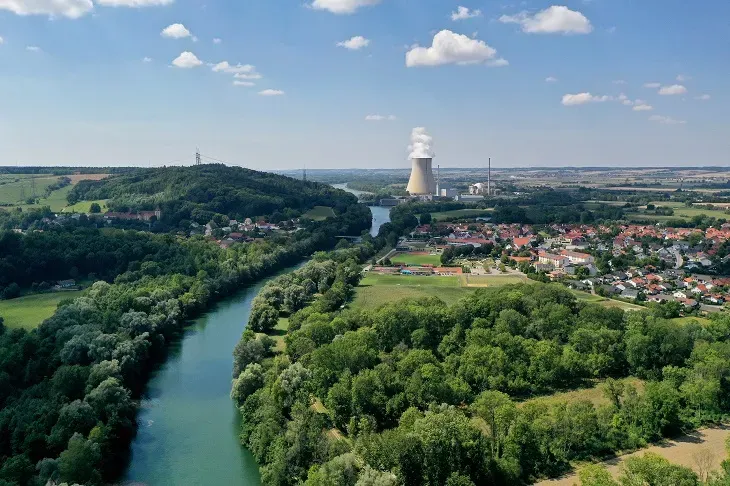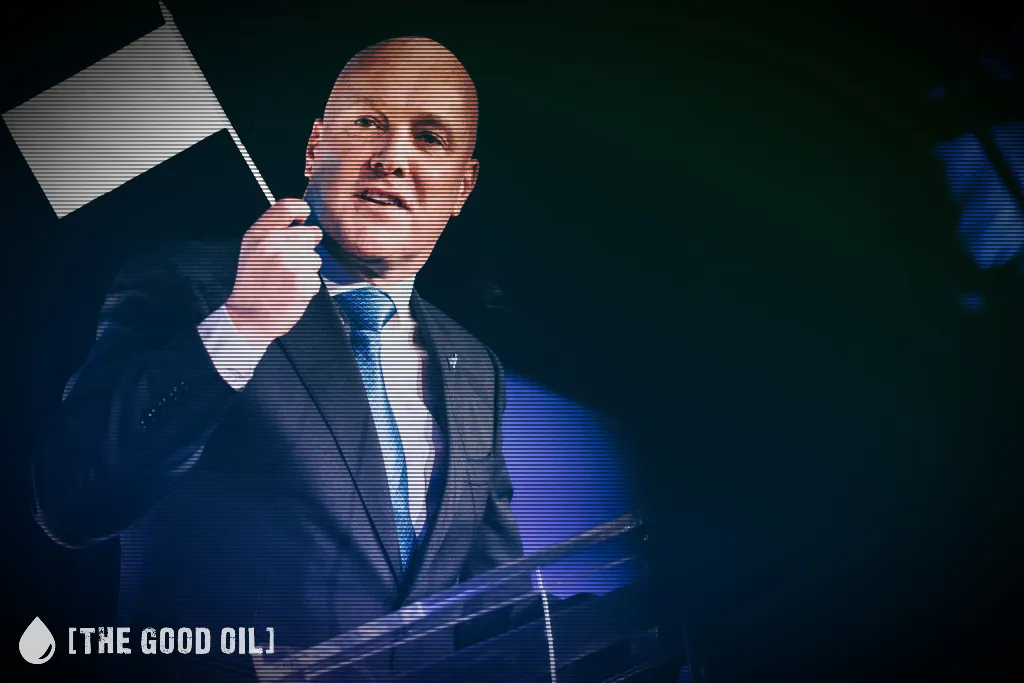Table of Contents
Nuclear energy is set to be – no pun intended – the hot-button issue of the next Australian election. After more than a decade in which voters have become increasingly frustrated with what they see as uniparty rule – the so-called “Laborals” – on climate change especially, Coalition leader Peter Dutton has finally hit on a clear point of difference. Promoting nuclear power allows the Coalition to promise an alternative to the Labor-Green obsession with weather-dependent generation, which has sent power bills through the roof with the promise of much worse to come, without obviously promoting heretical views on the modern religion of Climatism.
While climate change alarmism has never been a big vote-winner, it’s holy writ for the chattering elite. The media class went into hysterics over an unsubstantiated, third-hand claim that then-PM Tony Abbott called their religion “a lot of crap”. If the Coalition said what most Australians think – that Climatism is indeed a lot of crap, and shockingly costly crap at that – the chatterers’ screeching would be deafening.
Even as it is, they’re losing their minds at the prospect of nuclear, despite its obvious bonuses of being low-emissions, while providing the cheap, reliable power that weather-dependent energy never can or will.
Anti-nuclear is an even more venerable sacred cow for the chattering left than Climatism. For decades, most Australians bought into anti-nuclear sentiment as well. But public sentiment is shifting.
Naturally, then, the media-left are resorting to their standard gambit of lying through their teeth.
How can journalists claim Coalition support for nuclear power is “Trumpian”, or part of a conservative “culture war”, when 32 countries use nuclear energy?
Those 32 countries include our closest allies – barring, of course, our Very Special sibling, New Zealand – including such leftist poster-children as Sweden, Finland, the Netherlands, France and Canada. France has the second-highest number of reactors in the world, and is building more.
Even more tellingly, the rest of the Climate Cult are back on the nuclear bandwagon.
How do media critics of nuclear power explain commitments by more than 20 countries from four continents to treble their nuclear power generation capacity in the wake of warnings at the COP28 climate meeting in Dubai last year that the world is falling behind in its emissions-reduction targets?
When the left talk about “culture war”, what they mean is, they’ve started a culture war, and they’ll screech like banshees if anyone fights back.
Aren’t the actual culture warriors the journalists who refuse to ask questions about problems in the renewables rollout, flagged publicly last August and again in May by the Grattan Institute, a strong renewables backer? Problems with the speed of the rollout were again admitted last week in the Australian Energy Market Operator’s 2024 Integrated System Plan. Yet to read or listen to reporters from the ABC, the Guardian and The New Daily, you would think the entire world was following Australia down the road to 100 per cent renewables, problem free.
The truth is the renewables rollout is in trouble across the northern hemisphere and particularly in Europe. And emissions are rising in China, India, Russia, most of Asia and much of South America.
That’s because weather-dependent energy, with the exception of hydro, is ruinously expensive and inherently unreliable. But the Climate Cult don’t just refuse to discuss this, they furiously deny what everyone can see when they get their power bills.
Chris Uhlmann, now with The Australian, felt the full fury of the pro-renewables camp when he wrote about the potential for high levels of renewables to destabilise the South Australian electricity grid after a statewide blackout on September 28, 2016. Critics accused Uhlmann of being a closet climate denier and insisting the blackout was entirely down to a storm.
They were – and largely remain – oblivious to Uhlmann’s central point about the engineering parameters needed to provide stability in all electricity grids. This is not just about the intermittent nature of wind and solar power, but about the effects of asynchronous renewables in synchronous power distribution systems.
The latter is a technical issue that’s an even bigger problem with weather-dependent energy than its inherent reliability. As a veteran grid planning engineer, Russ Schussler, has written extensively on Professor Judith Curry’s blog:
“The electric energy produced by wind and solar is transformed by a power converter using inverters in order to synchronise with the oscillating grid. In terms of reliability, resources that spin in synchronism with the grid as electricity is produced are much better for the grid than those resources which use inverter-based technology to convert for grid injection.”
This is the science: using asynchronous power from wind and solar in a synchronous system is a much bigger problem than environmentalists understand.
The Australian
What environmentalists and msm journalists don’t understand would fill libraries, but in this case, the take-home is so simple that even they could understand it: more “renewables”, more grid instability. It’s Science, to throw the media’s favourite just-shut-up phrase back at them.
Then there’s the staggering environmental cost of “Net Zero”. With stunning hypocrisy, the Climatists simply refuse to acknowledge the ecological damage from bulldozing vast swathes of bush and farmland for tens of thousands of kilometres of new transmissions lines, and sprawling fields of glass and steel and whirling blades of bird-hacking death.
As for the economic cost: Labor and their media lapdogs screech that it would cost $380 billion to build nuclear capacity for Australia. Which, as Shadow Minister for Climate Change and Energy Ted O’Brien pointed out, is a fraction of what “Net Zero” will cost.
And, unlike weather-dependent generation, it will work.









